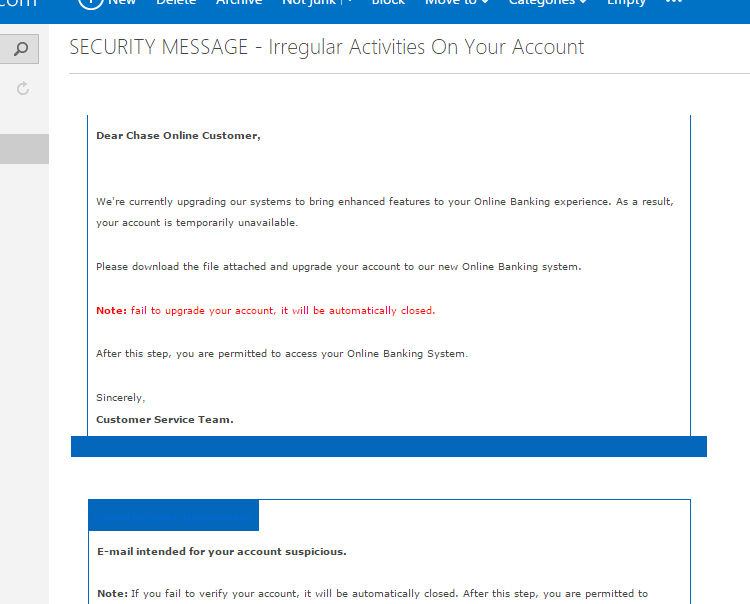From the spam traps: a fake Chase Bank “Security Warning” email, claiming to have noticed something peculiar going on with your account.

The mail reads as follows:
SECURITY MESSAGE - Irregular Activities On Your AccountDear Chase Online Customer,
We're currently upgrading our systems to bring enhanced features to your Online Banking experience. As a result, your account is temporarily unavailable.
Please download the file attached and upgrade your account to our new Online Banking system.
Note: fail to upgrade your account, it will be automatically closed.
After this step, you are permitted to access your Online Banking System.
Sincerely, Customer Service Team.
E-mail Security Information E-mail intended for your account suspicious.
Note: If you fail to verify your account, it will be automatically closed. After this step, you are permitted to access your Online Banking System.
ABOUT THIS MESSAGE: This service message was delivered to you as a Chase Bank customer to provide you with account verification needed. If you want to contact Chase, please do not reply to this message. For faster verification update, please download and verify your account. Replies to this message will not be read or responded to.
The mail comes with an attachment called Chase_OnlineBanking.html, and it asks for a rather sizable chunk of personal information including User ID, password, full name, home address, city, state, zip, home / mobile phone, email address AND email password.
As for payment details, they want ATM / debit card number, CVV, ATM pin, expiration date, checking / savings account number and account routing number.
Anybody caught out by this is not going to have a good day – please avoid all banking emails which come with attachments asking for payment and / or personal information. If in doubt, give your bank a call first and have them confirm that shenanigans are taking place. Scammers attempting to snare unsuspecting victims with HTML attachments is not a new trick, but it could prove very costly for anybody unfortunate enough to fall for it.
Christopher Boyd










